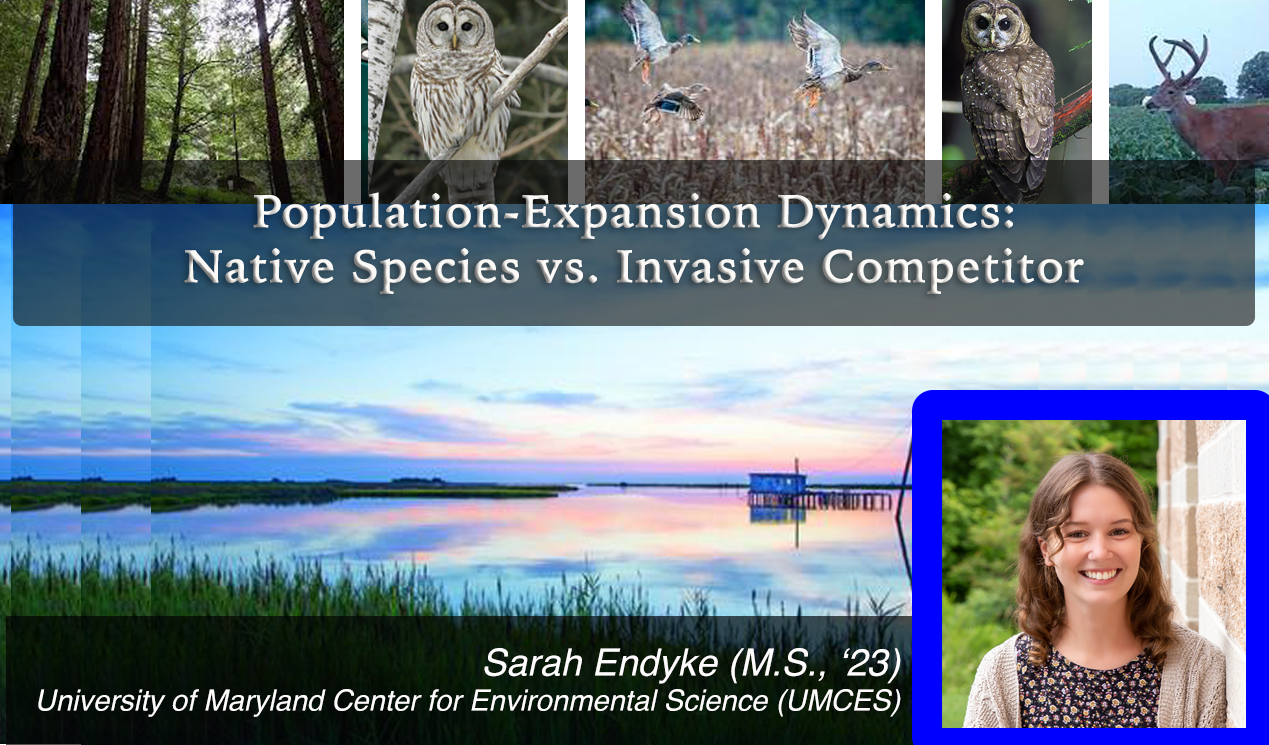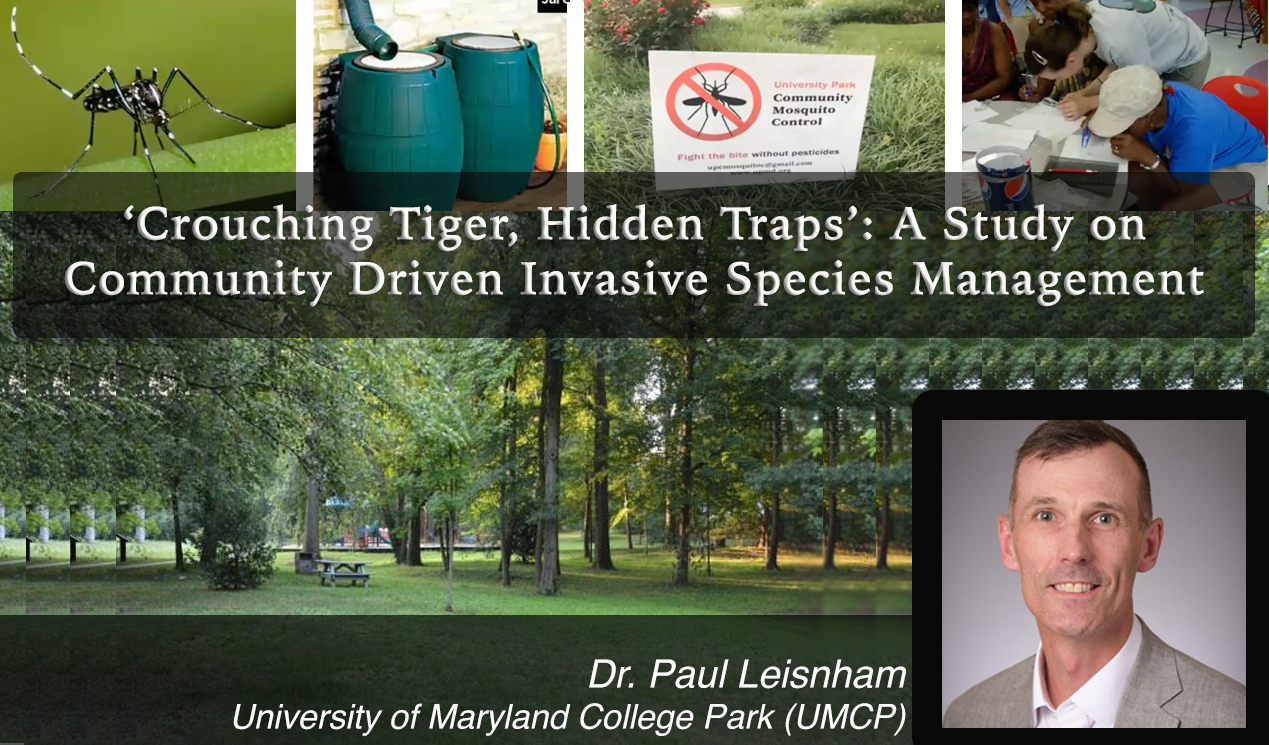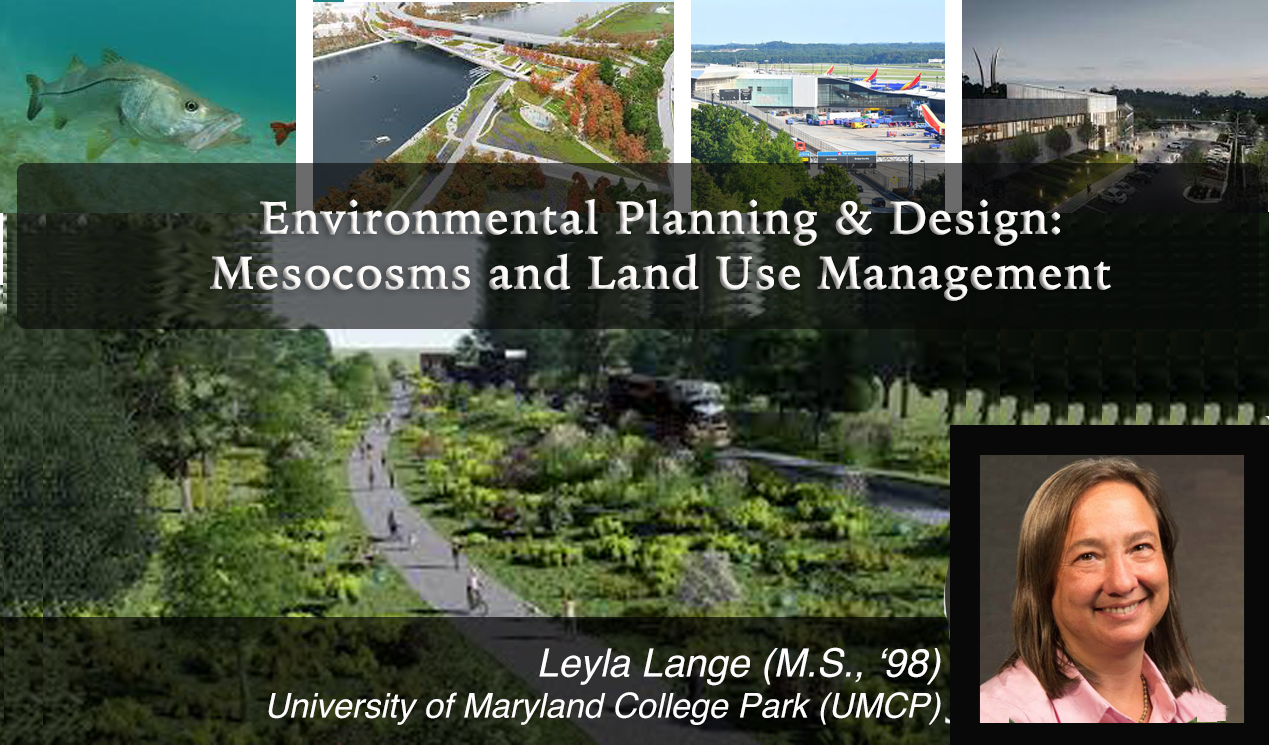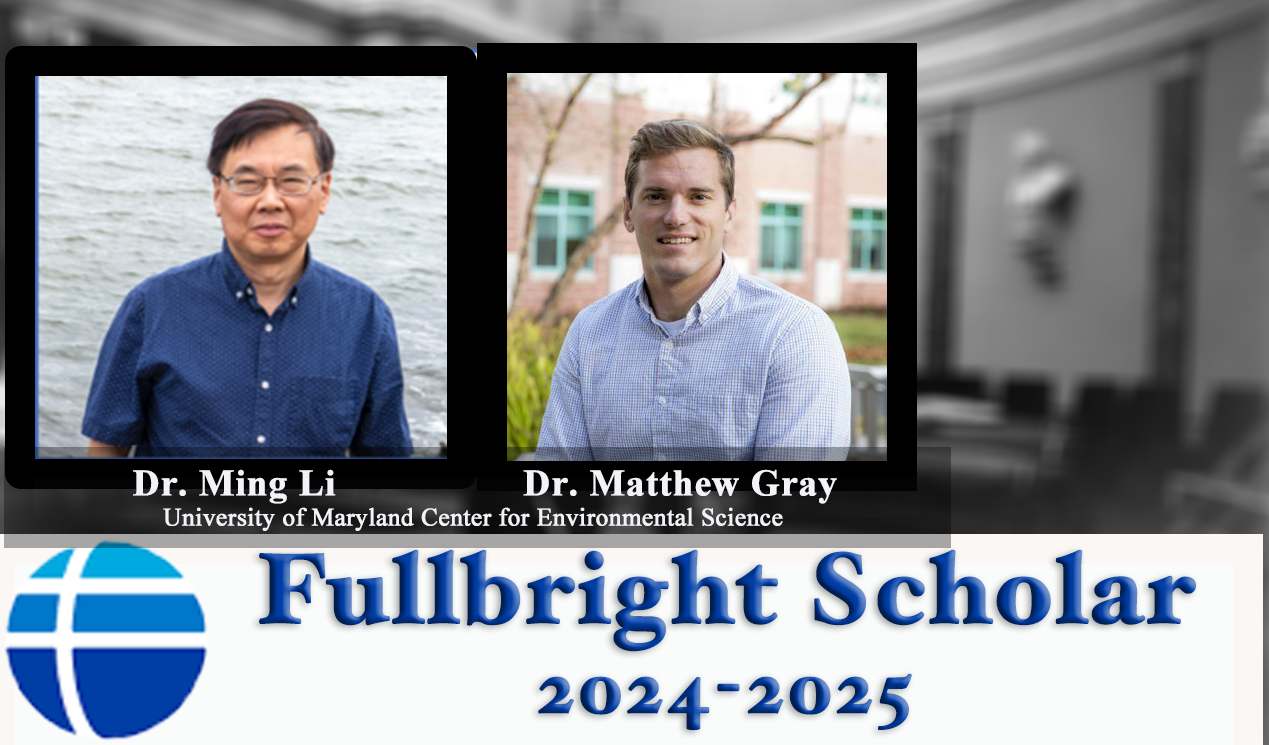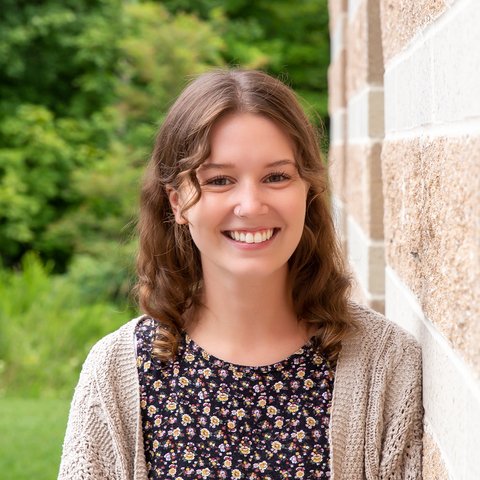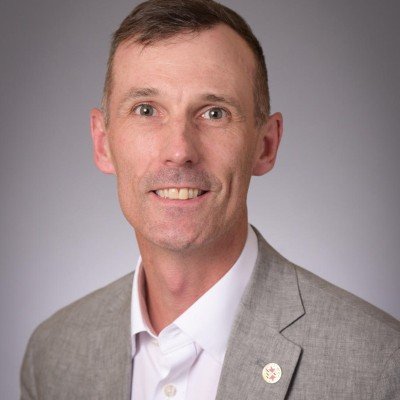ALUMNI CORNER
MEES RESEARCH CENTER
Sarah Endyke Photo Courtesy: UMCES/AL
Sarah Endyke (‘22, ECOL SYS) is a second year MEES doctoral student at the University of Maryland Center for Environmental Science. Advised by Dr. David Nelson, Sarah’s research focuses on a project seeking to inform the management and recovery of a threatened native species (spotted owls) by understanding movement and population-expansion dynamics of an invasive competitor (barred owls) in western North America
Leyla Lange
Leyla Lange (M.S. ‘98), is Vice President and Senior Environmental Scientist at Johnson, Mirmiran & Thompson, a local Hunt Valley, Maryland based professional association of partners and associates providing planning, design and construction management services for many major award winning projects in the United States. Advised by Dr. Patrick Kangas, Leyla’s research aimed to determine the degree of the biotic and abiotic veracity of the Everglades Mesocosm model, which was created by the Smithsonian Institution’s Marine Systems Laboratory, for the real Everglades, the parent unit.
Environmental Planning & Design: Mesocosms and land use management
leyla lange (M.S., ‘98)
Leyla Lange (M.S., ‘98)
Leyla Lange (M.S. ‘98), is Vice President and Senior Environmental Scientist at Johnson, Mirmiran & Thompson, a local Hunt Valley, Maryland based professional association of partners and associates providing planning, design and construction management services for many major award winning projects in the United States. Advised by Dr. Patrick Kangas, this Terp alum joined the MEES program after earning her B.S. (summa cum laude) in Natural Resource Management and Policy from the College of Agriculture at the University of Maryland College Park in Spring 1992. Leyla’s thesis entitled, “An analysis of the hydrology and fish community structure of the Florida everglades mesocosm” focused on the serviceability of theoretical, mathematical, computer and even living physical models of ecosystem and ecosystem dynamics called microcosms or mesocosms using the Everglades Mesocosm created by the Smithsonian Institution’s Marine Systems Laboratory, which is a mesocosm model of the South Florida Everglades as a test case. By comparing the hydrological cycles and fish community structures of the south Florida Everglades, Leyla’s research aimed to determine the degree of the model’s biotic and abiotic veracity for the parent unit. Leyla’s research compared early fish surveys of over 19 species of fish, of which 12 were documented to be reproducing. Her research found that the Mesocosm was found to match with the real Everglades in several aspects and suggested further research to expand its potential. After graduating with her Master’s in MEES, Leyla has gone on to work on various projects including: the 11th Street Bridge in Washington, DC, the I-95 Express Toll Lane Northbound Extension Project in Baltimore and Hartford County, Maryland the Harry W. Nice Bridge replacement project over the lower Potomac River as well as numerous airport improvement projects for the Maryland Aviation Administration. Leyla currently has over 27 years of experience performing environmental delineations and securing permit authorizations for major transportation projects in the mid-Atlantic region and specializes in developing permitting strategies for these complex projects. Recently, Leyla and her team are currently working on a new project for the Pentagon which will involve a new Visitor Education Center (VEC) for the 9/11 Pentagon Memorial on the grounds of the Arlington National Cemetery (ANC). The Department of the Army officially submitted the proposal this past November 2023 for approval. For more on Leyla, please click here.
Dr. Paul Leisnham Photo Courtesy: UMCP/AGNR
‘Crouching tiger, Hidden traps’: a study on community driven invasive species management
Dr. Paul T. Leisnham is Professor and Chair of the Environmental Science & Technology program in the College of Agricultural and Natural Resources at the University of Maryland College Park. A longtime MEES faculty member, Dr. Leisnham’s research and scholarship centers on two important environmental challenges facing Maryland, the U.S., and communities worldwide: the invasion and control of medically important mosquitoes and watershed health and sustainability. Dr. Leisham’s interdisciplinary approach helps address questions that are relevant to a range of disciplines, including population and community ecology, global change biology, watershed management, integrated pest management, and public health. In 2023, Dr. Leisnham along with our very own (now MEES alum) Aubrey Tingler (M.S, ‘23.) through a National Science Foundation Coupled Natural Human Systems award hosted a special ENST seminar presentation entitled, “Crouching tiger; hidden traps: Successful citizen led management of the invasive tiger mosquito in University Park, Maryland”. This special seminar covered the invasion, management and control of the Asian Tiger mosquito (ATM), one of the most problematic mosquito issues urban areas in Maryland face. Due to its development cycle which lends itself to common materials found in common residential areas, commercial management is often costly, localized and sporadic while agency led initiatives are equally ineffective or unwanted. This seminar after briefly surveying the history of mosquito-borne illness in the United States, covers Aubrey Tingler’s thesis research which focused on the effectiveness and use of Gravid Aed traps (GAT), a passive (no battery), affordable approach to mosquito control in University Park, Maryland. This study analyzed the results of 439 out of 954 (46%) of the University Park, Maryland households which used GAT’s from 2016 to 2021. The research posed two questions: What is the relationship between GAT coverage and the abundance of adult female ATM’s in 2021, four years after the program started, and what demographic, environmental, knowledge, attitude and practice (KAP) variables predict GAT deployment. The study found that GAT deployment was effective, however overall GAT deployment dropped from 46% (2017) to 28% in 2021. The analysis concluded with the need for continued community engagement and to further develop lasting connections. Dr.Leisnham has not only advised and mentored many MEES students over the years, but also collaborates with numerous researchers, extension professionals and community partners on projects like this and many more funded by state and federal grants, including those from NSF, USDA-NIFA, EPA-STAR, and NOAA. For more information on this study, click here and for more information on Dr. Leisnham, please click here.
MEES RESEARCH CENTER
population-Expansion dynamics: Native Species vs. invasive competitor
Sarah Endyke Photo Courtesy: UMCES/AL
Sarah Endyke (‘22, ECOL SYS) is a second year MEES doctoral student at the University of Maryland Center for Environmental Science. Advised by Dr. David Nelson, Sarah’s research focuses on a project seeking to inform the management and recovery of a threatened native species (spotted owls) by understanding movement and population-expansion dynamics of an invasive competitor (barred owls) in western North America. Prior to joining the MEES program, Sarah graduated (magna cum laude) with a double major, earning a B.S. in Environmental Science and B.A. in English in Spring 2020 from the University of Massachusetts-Amherst, all while earning numerous research and award accolades along the way. Under the advisement of Dr. Allison H. Roy, Sarah not only developed an undergraduate thesis research project examining the effects of algae availability on freshwater mussel growth but independently drafted a proposal that ultimately received Honors Research Grant funding which allowed her to conduct research as a Field Technician in Dr. Roy’s lab at the US Fish & Wildlife Service’s (USFWS) Cronin Aquatic Resource Center (CARC). According to Dr. Roy, despite numerous equipment failures, Sarah was able to collect an impressive dataset where the results were presented at the Northeast Aquatic Biologists Conference (2020) and would have also presented at that year’s UMass Undergraduate Research Conference had not the COVID-19 pandemic not interfered. After graduating, Sarah accepted a position with the USGS National Climate Adaptation Science Center (CASC) where she worked for over two years on an evidence synthesis on ungulates and climate change, where, along with a team of biologists, Sarah assisted in a systematic review of the documented and projected impacts of climate change on ungulates in western North America as well as global assessment of threats to inland fisheries and a critical thresholds and ecosystem services assessment for coastal ecological and human climate adaptation. Along with her academic achievements which not only include being on the Dean’s List for all semesters while at UMass, in addition to the Honors Research Grant (2019), Sarah also was awarded the Outstanding Senior in Environmental Science Scholarship (2020), and the John and Abigail Adams Scholarship (2016-2020) a prestigious scholarship awarded by the Massachusetts Department of Higher Education. Sarah’s impressive achievements extend far beyond her research and academic accomplishments. While pursuing and thriving under a rigorous academic and research workload, Sarah was awarded the Athletic Directors 4.0 Cut (2016, 2017) as an exceptional Division I student athlete on UMass’ track and field team. This prestigious award is given to only eight percent of the total number of honorees which includes both undergraduate and graduate students! After joining the MEES Graduate Program, the University of Maryland Graduate School in College Park selected Sarah to receive the highly competitive University Flagship Fellowship in which less than 70 applicants are selected annually university-wide! Sarah is currently pursuing her doctoral degree in MEES while working as a Graduate Research Assistant at the Appalachian Laboratory at the University of Maryland Center for Environmental Science. Sarah’s research aims to advance conservation science and practice, and wildlife management. For more information on Sarah, please click here.
CONGRAtulations to our 2024-2025 fullbright MEES Faculty scholars!
Dr. Ming Li & Dr. Matthew Gray Photo Courtesy: UMCES/HPL
March 8th, 2024 - Congratulations to Dr. Ming Li (UMCES) and Dr. Matthew Gray (UMCES) who have been named 2024 -2025 U.S. Fulbright Scholars! The U.S. Fulbright Program, now known as the Fulbright-Hayes Act, was created in August 1946 and later expanded in 1961, is the largest educational exchange program in history. According to the program website, in partnership with 160 countries, the program’s goal is to improve and foster intercultural relations, cultural diplomacy, and intercultural competence through providing opportunities for scientists and scholars to teach and conduct research abroad. According to the official UMCES announcement, Dr. Ming Li, based in UMCES’ Horn Point Laboratory, was selected to work with Portuguese scientists on coastal harmful algal blooms forecasting and warning system development, while Dr. Matthew Gray will be in Sweden to test hypothesis about oyster types that may thrive in warmer, more acidic oceans as a result of future climate change. Dr. Ming Li, a long time MEES faculty member, who has mentored and advised many MEES graduate students, expressed excitement on the opportunity to further collaborate with his Portuguese counterparts, in the UMCES article, saying this will “allow [him] to further foster relationships with oceanographers at the Portuguese Institute for Sea and Atmosphere in Portugal”. Dr. Matthew Gray, who is also based in UMCES Horn Point Laboratory, has advised many MEES graduate students, will be conducting acidification experiments with the European Flat oyster and is looking forward to “working in Sweden alongside fellow scientists, and attending European conferences [which will] help [them] share [their] story and [further] build these relationships.” According to the UMCES announcement, both professors will begin their respective research programs later this fall. For more information, please click here.
